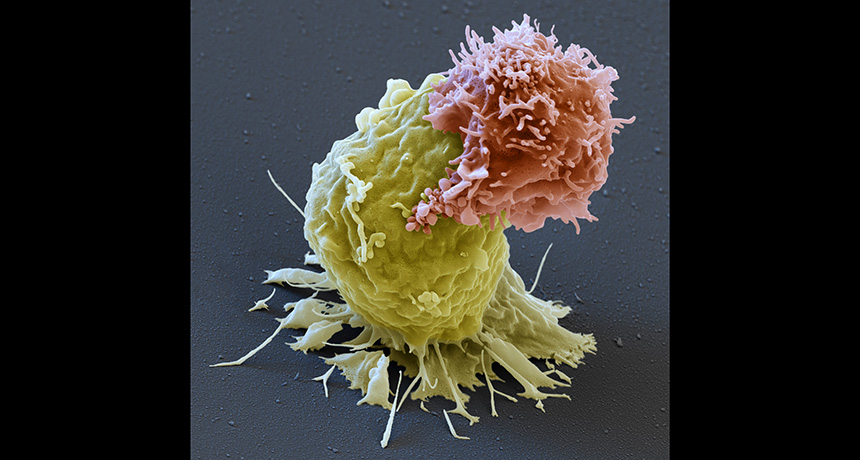Engineered immune cells boost leukemia survival for some

WASHINGTON — Immune cells engineered to hunt and destroy cancer cells may help some people with acute lymphoblastic leukemia (ALL) live much longer.
Outcomes depended upon disease severity before treatment, oncologist Jae Park reported April 3 at the American Association for Cancer Research annual meeting.
In ALL — expected to strike 5,970 people and kill 1,440 in the United States in 2017 — immune cells called B cells grow out of control in bone marrow and can spread to other tissues. Overall, five-year survival rates are 71 percent. But fewer than 10 percent of people survive for five years after a relapse of the cancer, said Park of Memorial Sloan Kettering Cancer Center in New York City.
Park and colleagues genetically engineered T cells from 51 people whose leukemia came back or who didn’t respond to initial chemotherapy. These CAR-T cells seek out and kill the rogue B cells.
Of 20 people who started the study with leukemia cells making up less than 5 percent of their bone marrow, 95 percent had a complete response to the CAR-T treatment. Most are still alive with no signs of leukemia; one patient remains in remission five years after treatment.
But 31 people who started immune therapy with leukemia cells composing more than 5 percent of their bone marrow didn’t fare as well. After good initial responses, the cancer came back a median of 6.3 months later. Patients survived a median of 17 months, although some are still alive after three years.
The second group also tended to have more severe side effects, including an immune reaction called cytokine release syndrome and neurotoxicity, or nerve problems.
Park and his colleagues are not yet sure why the therapy works better for some people than others. But, he said, CAR-T cell therapy “still provides better survival than traditional treatments.”